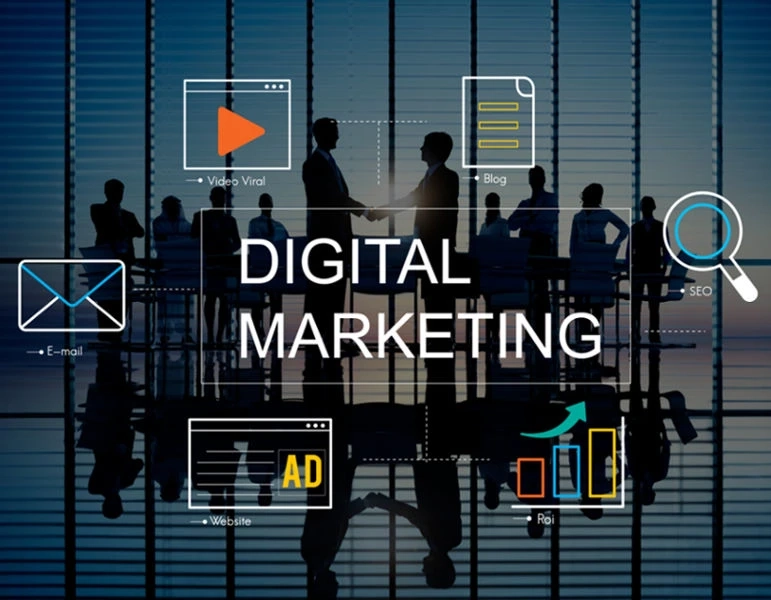Advertising has experienced an outstanding change in the age of digital media. Traditional marketing methods are no longer sufficient to reach and engage a vast and diverse audience. Instead, businesses are turning to digital marketing to connect with their target customers. Digital marketing encompasses a wide array of strategies and techniques, each designed to achieve specific goals. In this article, we will explore the eight types of digital marketing that have become essential for businesses in the online landscape.
Search Engine Optimization (SEO)
Search Engine Optimization, commonly referred to as SEO, is the practice of optimizing a website to improve its visibility in search engine results pages (SERPs). The goal is to increase organic (non-paid) traffic to a website by achieving higher rankings for relevant keywords. SEO involves various tactics, including on-page optimization, link building, keyword research, and technical SEO.
In an increasingly competitive online environment, businesses that invest in SEO can gain a competitive edge and drive more targeted traffic to their websites.
Content Marketing
The method of creating and providing valuable, relevant, and regular content to attract and engage a target audience is known as content marketing. This content can take many forms, such as blog posts, videos, infographics, eBooks, and more. The key is to provide information that addresses the needs and interests of your audience.
Effective content marketing builds trust and authority within your niche, driving brand awareness and, ultimately, customer loyalty.
Social Media Marketing
Social media marketing leverages social media platforms like Facebook, Instagram, Twitter, LinkedIn, and others to connect with potential customers. This type of marketing involves creating and sharing content, running paid advertising campaigns, and engaging with the community to build brand awareness and drive traffic to your website.
With billions of users worldwide, social media platforms offer an incredible opportunity to reach a broad and diverse audience.
Email Marketing
Email marketing continues to be an effective strategy for nurturing leads and retaining consumers. This strategy involves sending targeted emails to a list of subscribers who have shown interest in your products or services. Email campaigns can include newsletters, product announcements, promotions, and personalised recommendations.
Effective email marketing can boost sales, enhance customer loyalty, and keep your audience informed and engaged.
Pay-per-click Advertising (PPC)
Pay-Per-Click advertising, often associated with platforms like Google Ads and Bing Ads, allows businesses to bid on specific keywords and display ads in search engine results and on other websites. Advertisers pay an amount each time a consumer clicks on their advertisement, hence the term "Pay-Per-Click."
PPC is a highly targeted and cost-effective way to drive traffic to your website, with the potential for immediate results.
Affiliate Marketing
Affiliate marketing is a performance-based marketing strategy where businesses partner with affiliates or publishers to promote their products or services. Affiliates are paid a percentage of each sale or action produced by their marketing efforts.
This type of marketing can be a win-win for both businesses and affiliates, as it can significantly expand a brand's reach without incurring upfront marketing costs.
Influencer Marketing
Collaboration with people who have a large following and impact in a specific area or industry is what influencer marketing involves. These influencers promote your products or services to their audience through various content formats, such as sponsored posts, reviews, or endorsements.
Influencer marketing can help businesses tap into engaged and loyal audiences while benefiting from the credibility and trust these influencers have built.
Mobile Marketing
Mobile marketing has become more essential as the use of smartphones and mobile devices has increased. This strategy involves optimizing your website and content for mobile users, creating mobile apps, and running mobile-specific advertising campaigns.
Mobile marketing allows businesses to reach customers wherever they are, ensuring a seamless and user-friendly experience across different devices.
Conclusion
In today's digital landscape, businesses must leverage a combination of these eight types of digital marketing to succeed. Each type offers unique advantages and opportunities for reaching and engaging with a target audience. Whether you are a small startup or a large corporation, understanding and implementing these digital marketing strategies can make a significant difference in your online presence, brand awareness, and overall success. As technology continues to evolve, staying updated on the latest trends and techniques in digital marketing will be crucial for staying competitive in the digital arena.



